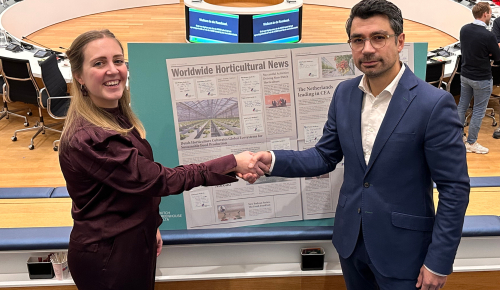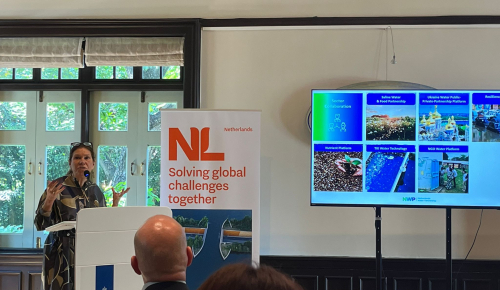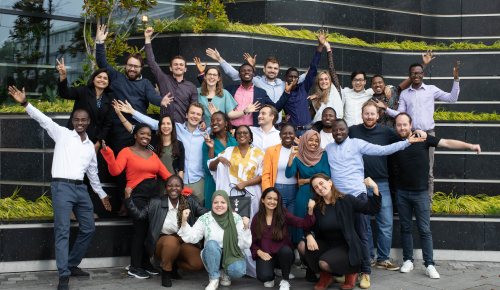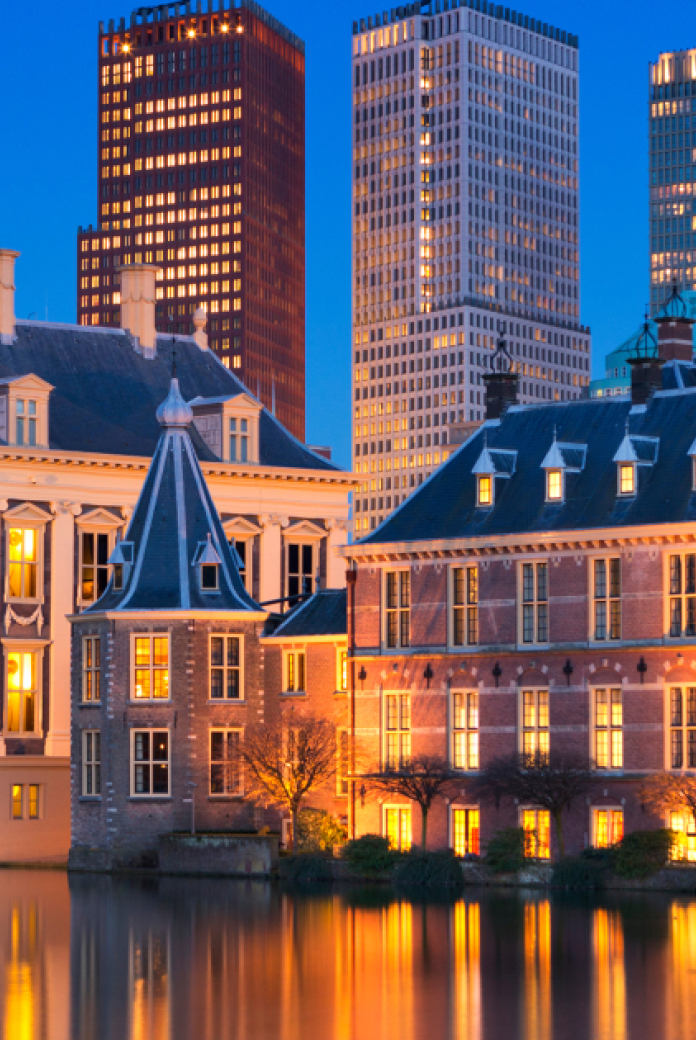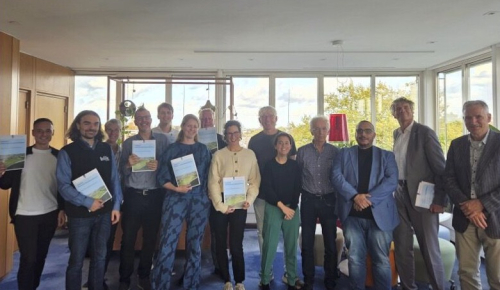Interview
18 October 2021Ecological network of waterways and dykes strengthens biodiversity
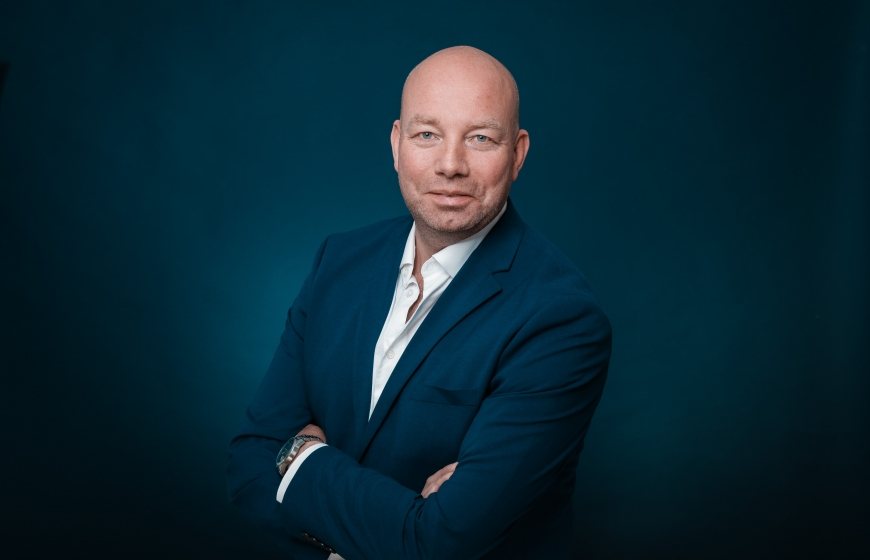
Dutch water authorities are making increasing efforts to strengthen biodiversity. One of them is the Amstel, Gooi en Vecht Regional Water Authority, which presented a biodiversity recovery plan this summer. Executive Board member Sander Mager explains how this plan can lead to a blue-green ecological network. It puts a stop to the current fragmentation of nature and supports climate adaptation. Mager also identifies valuable international perspectives.
Water authorities have been working on biodiversity for a long time, emphasises Mager, so the urgency is clear. "Water is life, water is central to all transition issues that we have to tackle. We used to concentrate on water quality, and sober and effective water management. We are now tackling the issue more broadly because biodiversity affects all our tasks.
Our waterways and surface water, our dykes and our purification: there is always a link with biodiversity. We have now given it a central place in our policy. Because we have an impact on biodiversity, because we recognise our social responsibility and because we are in a position to bring about improvement. Public water authorities invest about EUR 2 billion per year, which makes us an important party that can bring about change by looking for nature-positive solutions. We want to seize this opportunity, to further reduce our ecological footprint."
Blue-green ecological network
In concrete terms, the water authority focuses, for example, on the waterways and dykes. Mager explains: "With a total length of about 1,600 kilometres in our region alone, they add up to a great fine-mesh blue-green network of natural landscape elements that simultaneously form ecological connecting zones.
The problem in the Netherlands is the fragmentation of nature. The ecological network connects natural areas and communities of flora and fauna. This is essential for the survival of species – and for biodiversity. Luckily, we are not alone. The Dutch water authorities have drawn up a biodiversity position paper in which we emphasise together that we are in a unique position to contribute to the recovery of biodiversity. Because our dykes and waterways, if designed in a nature-friendly way, can form an enormous blue-green network. And that can provide significant support to the recovery of biodiversity."
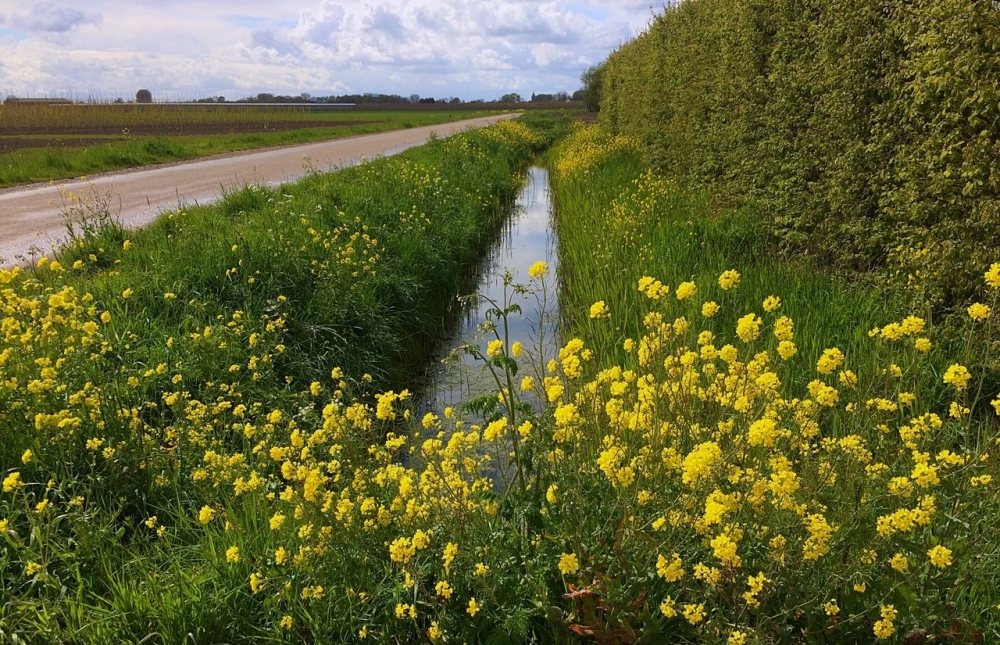
Combination with climate adaptation
Moreover, the water authorities want to combine goals, emphasises Mager, including climate adaptation, at least as urgently. "For this we need more water storage, to reduce the risk of both flooding and drought. We need space for that. So, suppose we make our main waterways three meters wider and provide them with nature-friendly banks?
We also make grateful use of new insights into the strength of dykes. The classic idea that strong dykes are always made of, clay, rocks or asphalt is outdated, that's just not the whole story. Thanks to the roots, a flower-filled dike also provides strength that can prevent erosion. This can lead to a different view on design and maintenance."
Our dykes and waterways, if designed in a nature-friendly way, can form an enormous blue-green network. And that can provide significant support to the recovery of biodiversity.
Sander Mager
Working with stakeholders
Converting dykes into ecological corridors and making waterways wider, certainly affects farmers – it often is their land. So, Mager acknowledges: "Biodiversity is a responsibility for them as well, but we must make it worthwhile, in an open dialogue. In general, we have to join forces with all stakeholders, we need each other on the way ahead. That is why we have committed ourselves to 'Together for Biodiversity' to work with nature organisations, farmers, scientists, banks and businesses on the Delta Plan for Biodiversity Recovery."
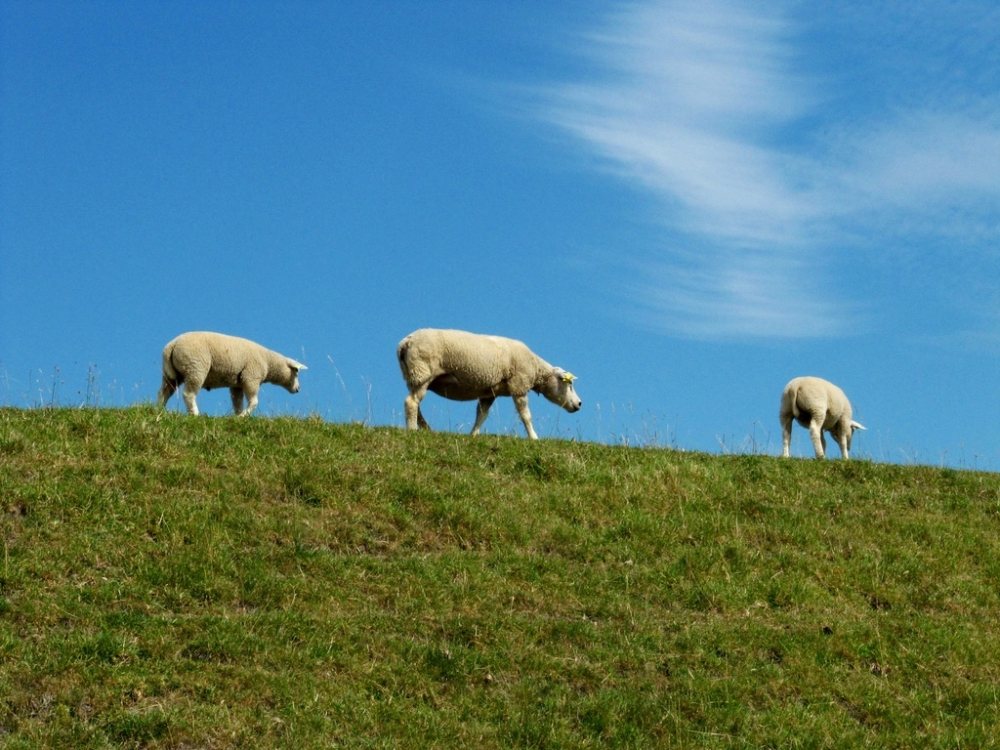
Pilot for strong business case
Water authority Amstel, Gooi en Vecht is now looking for a good pilot location. Mager: "Technically it's not that complicated. The main challenge is to create a strong and interesting business case in which we involve the farmers. At the same time, if we have those wider waterways, we will have to set up fewer other large areas for water storage and our pumping stations will not have to run as hard. This frees up money to finance these kinds of initiatives.
This way, we are moving towards an attractive business case for creating new nature, boosting biodiversity and making the Netherlands more climate-resilient. We aim to have the pilot completed within two years."
Impact of waste water treatment
The Water Authority not only wants to strengthen its positive impact on biodiversity, but also reduce its negative impact, Mager underlines: "We release waste water onto surface water. And even though we meet the standards, and our waste water is well-treated, it still contains more nutrients than the receiving body of water. The best approach is, of course, that substances that do not belong in waste water do not end up in it at all. So we have to tackle this together, at the source. At the same time, we aim to reduce the use of chemicals in our water treatment plants, for example by re-using and applying new technology."
I found it remarkable how many smart solutions the 10 Sarphati Sanitation Challenge finalists came up with for the reuse of raw materials and the application of natural processes in developing countries. With nature instead of against it.
Sander Mager
International opportunities
Mager is convinced that the Netherlands has a lot to offer internationally when it comes to the role water boards can play in protecting and restoring biodiversity.
"At the same time, there is a lot of knowledge to be gained abroad. For example, by moving from large treatment plants to small decentralised solutions; closing local cycles. Countries that have come up with great solutions, because they lack a central infrastructure, can be a great inspiration.
I was part of the judging panel for the Sarphati Sanitation Challenge - a new initiative of World Waternet, Aqua for All and Accenture - to highlight the importance of safe sanitation and the need for creative, sustainable and scalable sanitation solutions. I found it remarkable how many smart solutions the 10 finalists came up with for the reuse of raw materials and the application of natural processes in developing countries. With nature instead of against it, including a reappraisal of concepts from the past that we have lost sight of. This trend is receiving more and more attention internationally, and rightly so. And we can benefit from this here in the Netherlands."
Sander Mager, a trained ecologist, is a member of the Executive Board of the Amstel, Gooi en Vecht Regional Water Authority. He is also board member of the Dutch Water Authorities, with Sustainability and Circularity in his portfolio. The water authority covers parts of the Provinces of North Holland, Utrecht, and South Holland, including the city of Amsterdam, housing around 1.3 million people.
Featured NWP members: Waternet
